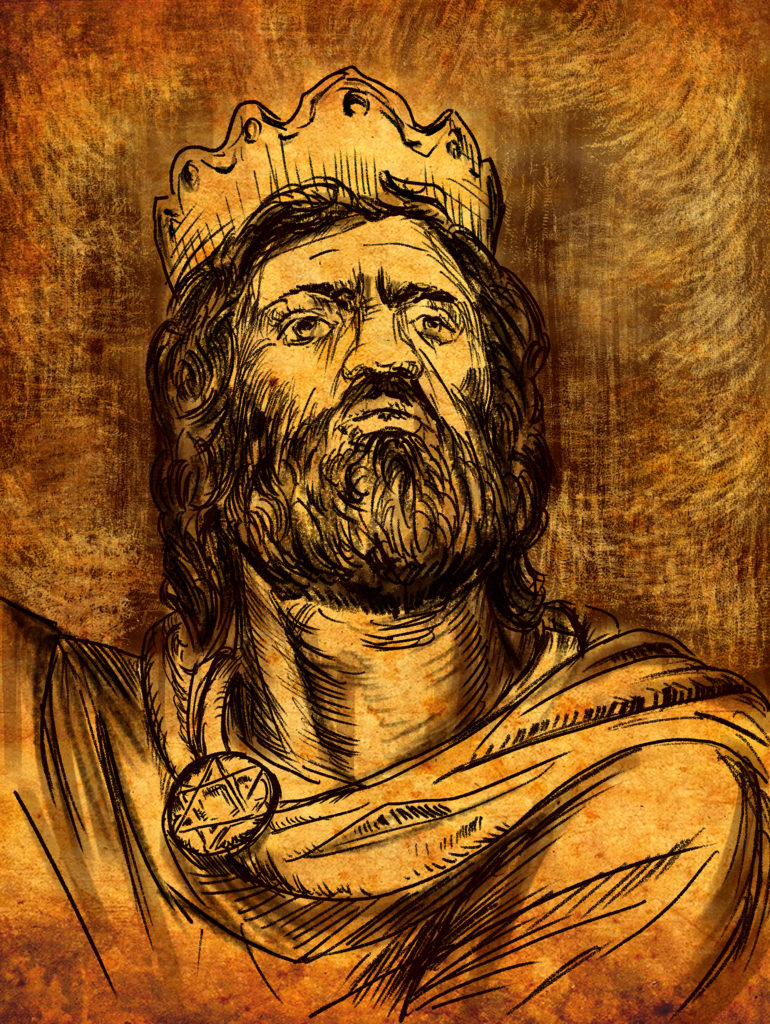The LORD rewarded me according to my righteousness;
He repaid me according to the cleanness of my hands.
For I have kept the ways of the LORD and have not turned from my God to wickedness.
Indeed, I have kept all His ordinances in mind and have not disregarded His statutes.
I was blameless toward Him and kept myself from sinning.
So the LORD repaid me according to my righteousness,
according to the cleanness of my hands in His sight.
With the faithful You prove Yourself faithful;
with the blameless manYou prove Yourself blameless;
Psalm 18:20-25
As believers in Christ, we know our righteousness comes from Him alone. It is His grace and sacrifice that makes us pure and holy. The righteousness of man and the works of the flesh do not produce the strength and power of God. That reality is a central piece of the purpose of the cross and the resurrection.
The work of Christ does not end at the point of salvation, and it was not completed to bring us to the point of forgiveness and redemption and then be done with us. The work of the cross and the resurrection was the beginning of our walk with God – not the end. God desires to make us whole and holy. Through Christ, we have access to a higher standard of living. It is a standard by which we can now boldly approach the throne room of grace (Hebrews 4:16). A life of strength is a life that begins and continues in the work of Christ.
Psalm 18 is a terrific passage of scripture that describes a man finding strength in the midst of despair. In the notation that serves as the chapter’s introduction, we learn it was written by David when he was on the run from Saul.

King David’s raw humanity is often what makes him such an appealing study in the Bible.
When I read Psalm 18, I imagine David on a day when the frustration and despair of his unjust flight from Saul were growing on him. He was separated from his family. He was living in the wilderness. He did not know how the story would end. The pains of the moment pressed upon him. In that despair, he cried out to God. (The word cry or called is found at least four times in the Psalm’s opening verses.)
Out of that cry, David found strength. The young man experienced his perspective shift. He remembered and recalibrated around the revelation that God, not David, was his source of strength. God had not forgotten him. God had not abandoned him.
David even saw God delivering him. The situation did not change (not yet), but David’s internal reality and perspective did change. David realized that as he called out and considered the might and love of God, he was delivered from the pains of crisis which a moment earlier seemed to press in all around him. God rescued David because God delighted in David (verse 19). David felt the security, the affirmation, and the strength of God’s delight in him.
Then we arrive at this interesting sequence of considerations in verses 20-25 (see above). What did David’s righteousness have to do with the situation? It was God’s strength, not David’s, that led to the man’s deliverance. What does he mean that God repaid him in verse 20? Did God owe David anything?
These words are not describing salvation or doctrinal issues of righteousness and grace. They are providing us insight into right living. They are shining insight into the lifestyle that has clear access to strength and wholeness.
David was not a perfect man. He had many failings. That is one of the reasons why we enjoy studying his life and walk with God. Despite his failings, God delighted in him. And despite his failings, David’s heart was always set on doing the right thing. When he failed, he repented, he corrected, and returned to God. That was the righteousness (or rightness) that God rewarded David for in verse 20. It was the cleanness of his hands for which God repaid him. The intent of David’s heart was correct.
A life of strength and unobstructed access to the strength of God is a life undistracted by self-will and guilt. Our focus is upon God’s purposes and preferences. Such a life is not exempt from hardship or frustration, but we have access to strength in God when those come. We cry out, and he hears us. We take confidence that he hears us because we remain in conscious awareness of his delight in us.
Sin and unholy lifestyles distract us from God. Their activity in our lives places our sight upon our self, our guilt, our fear, and our inadequacies. A lifestyle of right living makes us correct at the moment. Our own strength does not perfect us. We are perfected because we can see through the pressure or darkness of the moment to the power of God’s delight in us.
When Psalm 18:25 says With the faithful you prove yourself faithful; with the blameless man You prove Yourself blameless; and with the pure You prove yourself pure, but with the crooked You prove yourself shrewd we understand the posture of our heart determine how and what we see of God. If our heart is frustrated in the guilt of sin, distracted by the inadequacies of the self, then we miss (or at least delay) our access to God in the moment we need him.
Building a life of strength is not accomplished only in the moment of crisis or need. It is a day-by-day process of right living. It is choosing His way over my way so that when the moment of crisis arrives, I can cry out to God, and I know He hears me and delights in me.





What do you think?
Show comments / Leave a comment